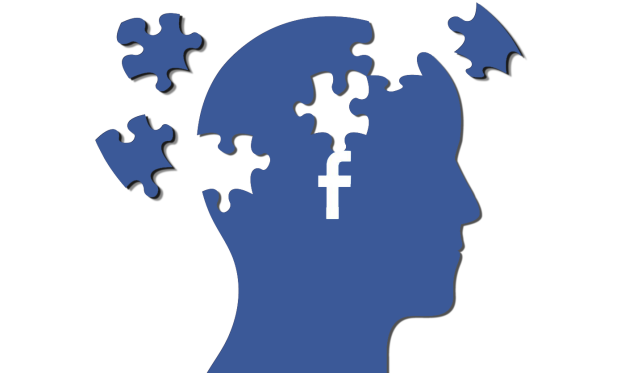
These days, Facebook is just a part of life. In December 2011, the preeminent social network boasted more than 845 million active monthly users, with 483 million of those using the site daily. And a 2011 study by market research firm Nielsen shows that the average Facebook user spends four times as many hours on the network each month as he or she spends on any other site. Like getting too little sleep, drinking, smoking, or sunbathing, the increasing number of hours we spend on Facebook is surely affecting our health, right? Below, five ways experts believe Facebook could be hurting our mental health.
1. Eating disorders
Pinterest isn’t the only social network that makes people feel bad about themselves. According to a recent survey of 600 Facebook users, ages 16 to 40, by the Center for Eating Disorders at Sheppard Pratt, more than half say that seeing pictures of themselves and others on the site “makes them more conscious about their own body and their weight.” And it wasn’t only females who felt the burn; 40 percent of male respondents said they comment negatively about their own bodies on Facebook photos. On top of that, 32-percent said they feel “sad” when comparing photos of themselves to pictures of their friends. And 44-percent said they wished they had the same body or weight as their friends, when looking at photos on Facebook.
2. Low self-esteem and depression
This falls in the same vein as poor body image: an increasing number of studies (1, 2, 3) have found that posts by our friends make us feel worse about our own lives. This is due to the fact that we naturally compare ourselves to our peers. If the people around us are posting happy, significant life accomplishments (which happens every day, if you have a lot of friends), then we feel worse about our lack of having anything good to report. This is exacerbated by the fact that people usually choose to post good things about their lives, rather than the bad things, which skews our perception of reality even further. Experts suggest limiting the number of friends you have on Facebook, and de-friending those who like to brag about their “amazing” lives the most.
3. Psychological disorders
In addition to making us depressed, Facebook may also be making our kids crazy — literally. Dr. Larry D. Rosen, a professor of psychology at California State University, Dominguez Hills, last year released a study that concluded that teenagers and young adults who spend much of their time on Facebook are at a higher risk of developing a cornucopia of psychological disorders, including mania, paranoia, aggressive tendencies, and antisocial behavior. Moreover, Facebook may add fuel to the fire in those teens who display narcissistic tendencies, by allowing them to broadcast their unhealthy self-love 24/7.
4. Stress
Posting “happy birthday” on your friend’s Wall may be less stressful than actually attending a party or even sending a card. But that doesn’t mean Facebook is making your life any easier. Dr. Kathy Charles of Edinburgh Napier University released a study early last year, which showed that, of the 200 people she surveyed, a majority felt some type of stress in relation to the social network, and 12-percent said the site makes them feel anxious. Those with a large number Facebook friends experienced the most stress. Dr. Charles also found that many become stressed at the thought of missing out on something good posted to the site, a phenomenon now known as the “fear of missing out,” which has become so widespread it has its own acronym (FOMO).
5. Addiction
Up there with sex addiction, and good ol’ fashioned Internet addiction hangs a new monkey on our backs: Facebook addiction. Researchers at the University of Chicago recently analyzed more than 8,000 reports of everyday desires from 250 participants, and found that quitting Facebook (and Twitter) was more difficult than giving up cigarettes or alcohol. This follow a study of Web search analytics data by marketing firm The Internet Time Machine, which shows that the term “Facebook addiction” has become one of the most searched-for terms in this category, (with things like “alcohol addiction” still ranking higher on the list). As with stress, Facebook addiction has been linked to FOMO.
[Lead image: D K Stewart/Shutterstock]
